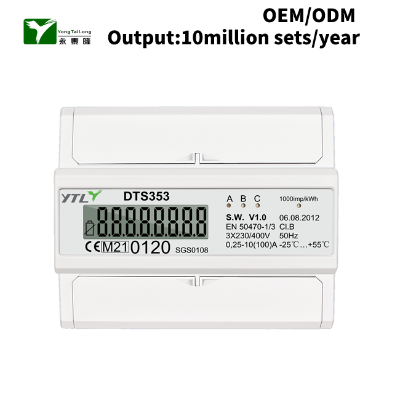As the world becomes increasingly concerned about energy conservation and the environment, the notion of smart power meter has gained traction. But what exactly is a smart power meter, and what functions does it have?

A smart power meter, also known as an Advanced Metering Infrastructure (AMI) system, is an electronic device that is installed in homes and businesses to monitor the amount of energy consumption. Unlike traditional meters, smart power meters can collect and transmit real-time usage information to utility companies. This allows them to manage energy distribution more effectively and helps consumers make informed decisions about their energy usage.
The key function of smart power meters is to provide accurate and real-time data on energy consumption. This data enables utilities to better manage the grid, reduce energy waste, and optimize energy distribution. Additionally, smart meters can help consumers better understand their energy usage patterns and make informed decisions on how to conserve energy.
One of the key features of smart power meters is their ability to monitor energy usage at a granular level. By collecting data on energy usage in real-time, utilities can identify areas where energy is being wasted and take corrective action. For example, if a homeowner turns on the air conditioning but forgets to turn it off before leaving the house, the smart meter can detect this and adjust the temperature accordingly, saving energy and reducing costs.
Another important function of smart power meters is their ability to measure energy production from renewable sources, such as solar panels. By collecting data on both energy consumption and production, utilities can more effectively balance the grid and reduce reliance on non-renewable energy sources.
Smart power meters can also assist utilities in detecting and responding to power outages more rapidly. By receiving real-time data on energy consumption, utilities can identify where outages have occurred and take corrective action more rapidly. This can help to reduce downtime and increase customer satisfaction.
In addition to these functions, smart power meters can also provide various benefits for consumers. For example, some smart meters can provide energy usage data in near real-time, allowing consumers to monitor their usage and make informed decisions about when to adjust their energy consumption habits. This can help to reduce energy bills and save money in the long run.
Moreover, smart power meters can also provide consumers with greater flexibility in how they pay for energy. Instead of paying a fixed amount each month, consumers can be billed based on their actual energy usage. This can help reduce energy waste and promote greater energy conservation.
In conclusion, smart power meters represent a significant advancement in energy management technology. By providing real-time data on energy consumption, these devices can help utilities better manage the grid, reduce energy waste, and promote greater energy conservation. Additionally, smart meters can offer a variety of benefits to consumers, such as increased flexibility in how they pay for energy and the ability to monitor their energy usage and make informed decisions about conservation.

 English
English 中文简体
中文简体



.jpg?imageView2/2/w/500/h/500/format/png/q/100)







.png?imageView2/2/w/500/h/500/format/png/q/100)


